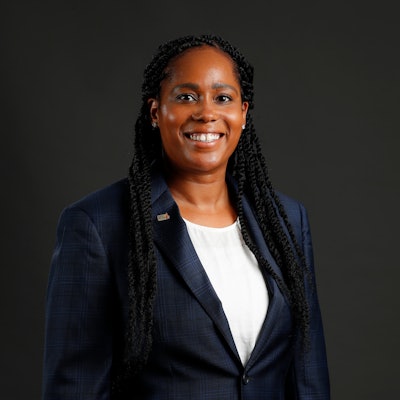This year is the 50th anniversary of Title IX, the landmark law that prohibits discrimination on the basis of sex by education programs that receive federal funds.
When Title IX was passed in 1972, it was meant to ensure equal access and quality for women’s sports programs. It promises that women have access to the same funding and caliber of educational programs as men do. And over the years, the law has expanded to include protections against sexual harassment and assault, which was determined to be a form of sexual discrimination.
But the women who were (initially) advocating for equality in athletics weren’t advocating for all women to have equal athletic experiences. An entire group of women remains absent from the broader conversation about access and protection from discrimination on campus: Black women.
We need to confront the fact that Title IX isn’t as effective a tool for equality as we hoped it would be 50 years later. Colleges and universities must do better centering and normalizing the Black woman experience not just in collegiate athletics, but across all areas of higher education. And they should start by acknowledging that Black women don’t benefit from Title IX the same way their white peers do.  Jessica Brown
Jessica Brown
In 2019, the NCAA reported that nearly 50,000 of its student-athletes were women. Only 12% of those athletes were Black women. A 2021 report from The Institute for Diversity and Ethics in Sports found that of the NCAA’s senior woman administrators, 79% are white and 15% are Black.
In athletics, centering Black women means revising policies and rules that are discriminatory to Black athletes and being intentional about hiring practices. Creating an inclusive environment for Black athletes doesn’t end after they are recruited and offered a scholarship to play.
Institutions should re-examine rules that are intentionally discriminatory to Black female athletes, such as policies regarding what is deemed appropriate attire and what warmup music they can listen to.
And, just as critically, Title IX does not apply only to college athletics, but to all sexual harassment and violence since its protections were expanded to include sexual assault in 1992.
Black women are also largely left out of the conversation surrounding on-campus sexual violence and are the least likely to report sexual violence even though they are among the most likely to experience it at some point.
There are large gaps in the research around gender-based violence reports on campus, and many sexual assaults still go unreported. But according to Know Your IX, an advocacy organization that works to end sexual violence in schools, approximately one in five women are sexually assaulted during their time in college. And about 22% of Black women are survivors of sexual violence.
Black women are more likely to distrust the justice system and report sexual violence to the police – it’s estimated that for every 15 Black women who are assaulted, only one reports the attack. Black women are members of a community where it is sometimes preferred to “handle it at home” rather than go through any judicial process, including the Title IX process. And they are more likely to be blamed as victims if they do report an assault.
There is much more work institutions need to do to better protect those women and ensure they get the justice they deserve.
Even as Title IX has been expanded, challenged, reinterpreted and debated over the past 50 years, there’s no doubt that it has opened many doors for women on college campuses, and particularly for women athletes. A wide array of educational opportunities were opened for women seeking a college degree, and we celebrate many accomplished female athletes today that benefited from Title IX.
Yet it’s also clear that it hasn’t leveled the playing field for all women - Title IX has disproportionately benefited white women.
The goal of Title IX, when it was written, was gender equality, not racial equality. On the anniversary of the law, we need to recognize that Title IX has not fulfilled its promise and that the access and protection it is designed to provide does not yet apply to all women.
Jessica Brown is vice president for student affairs and athletics at North Central College in Naperville, Ill.















